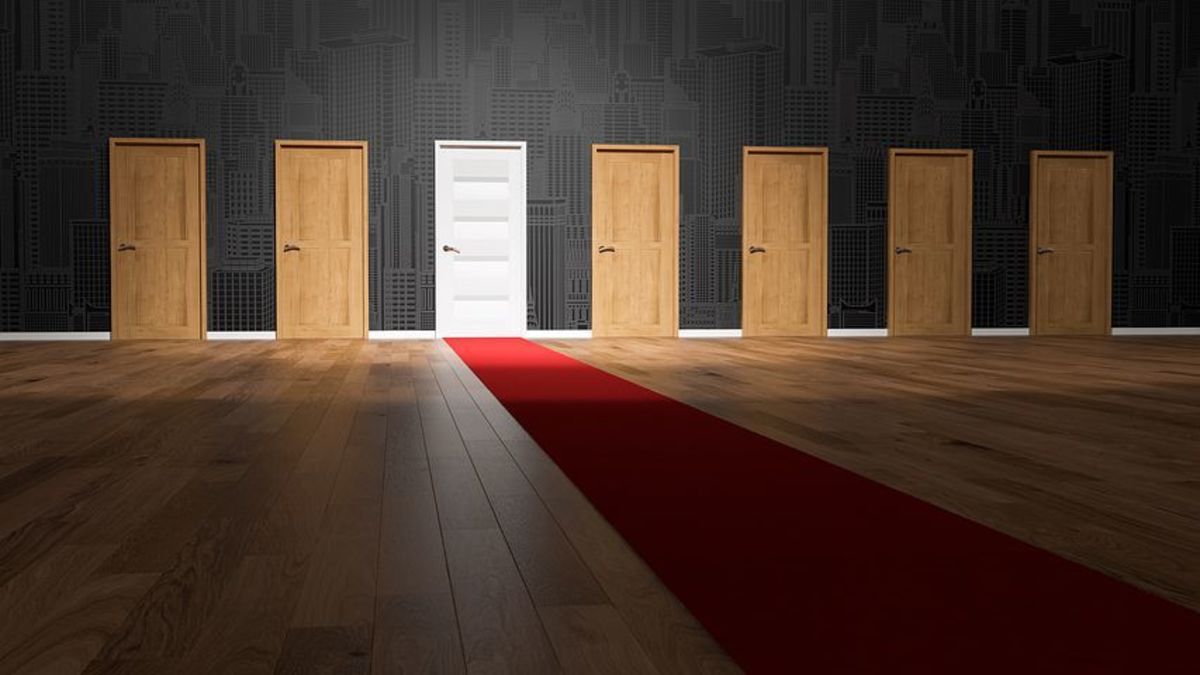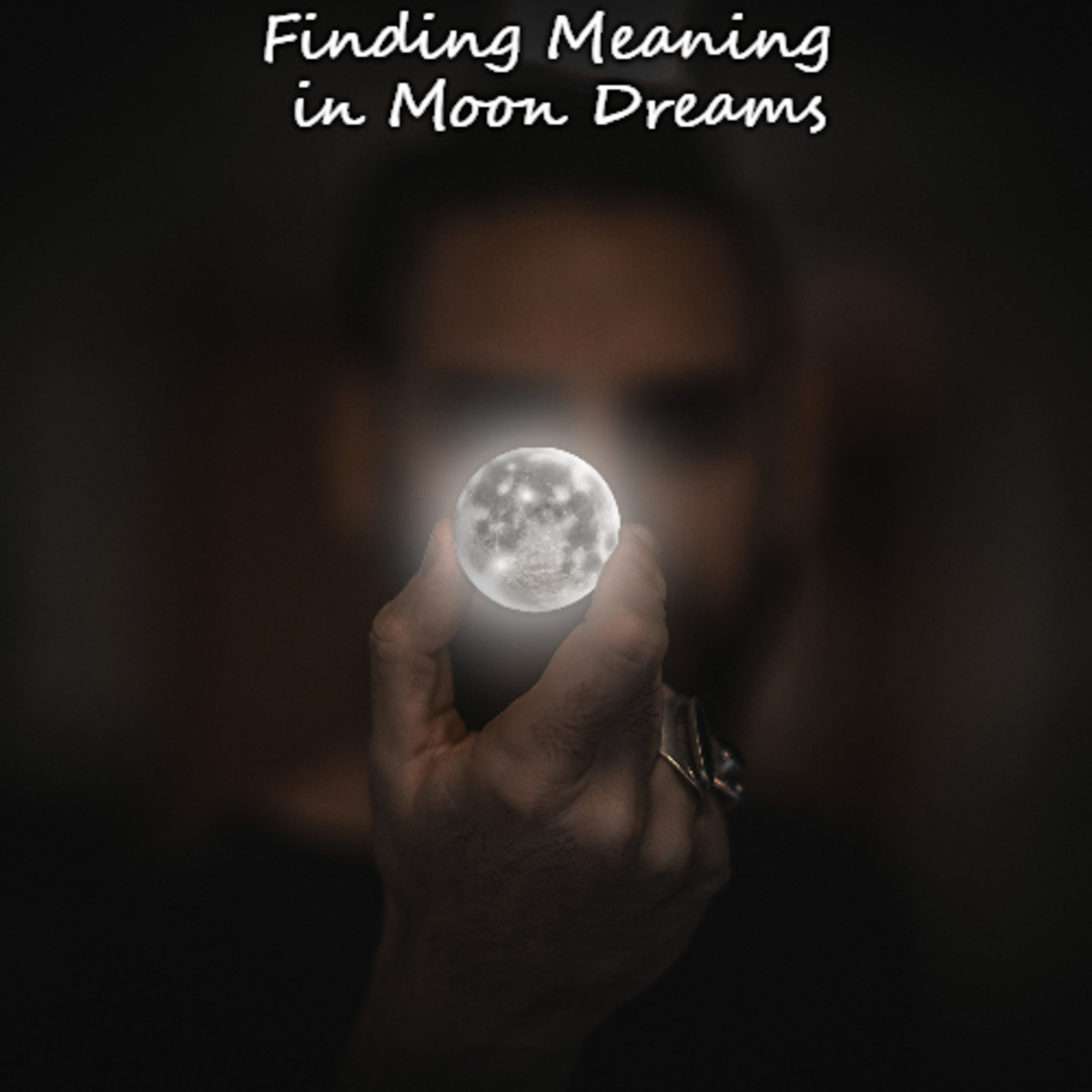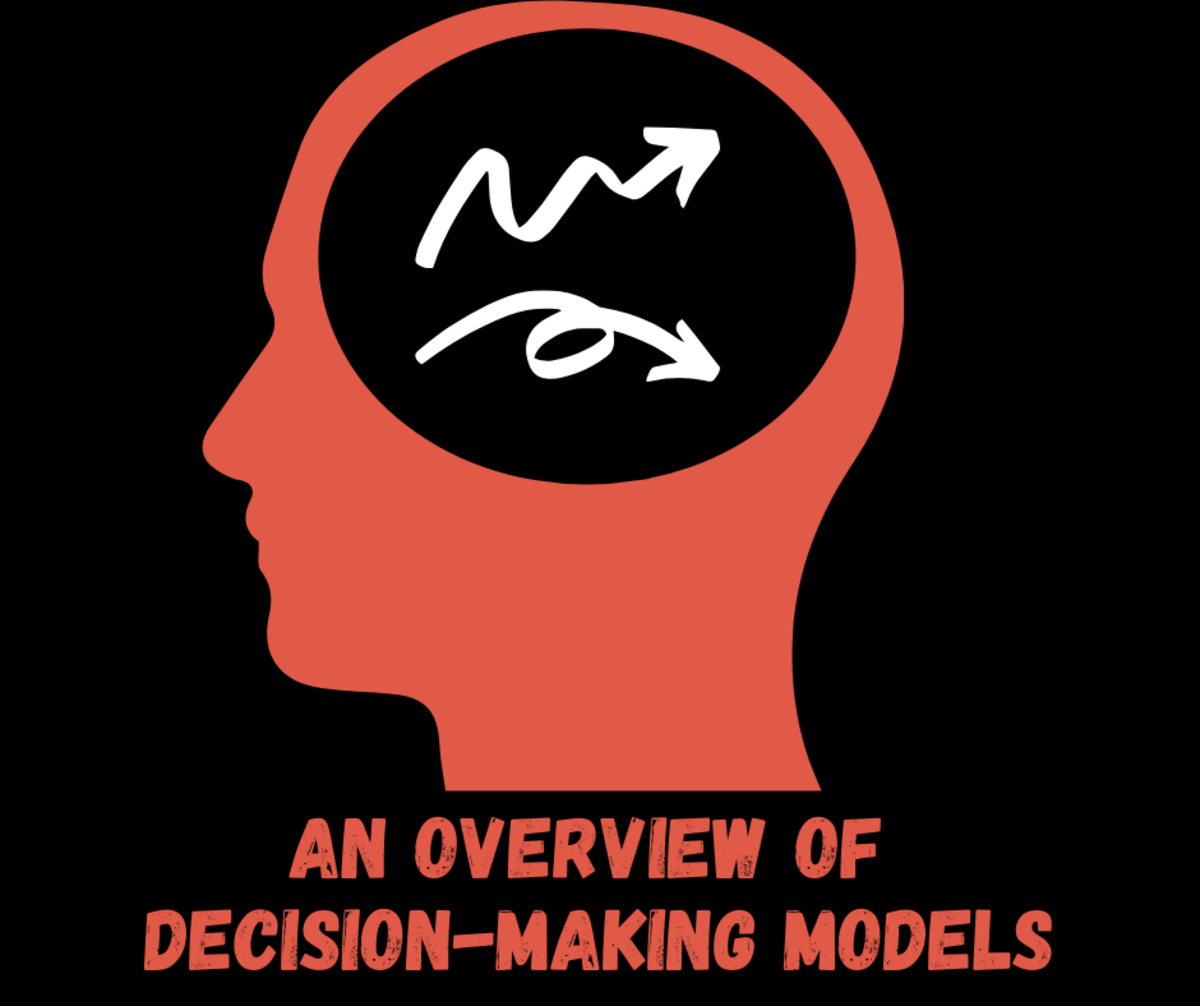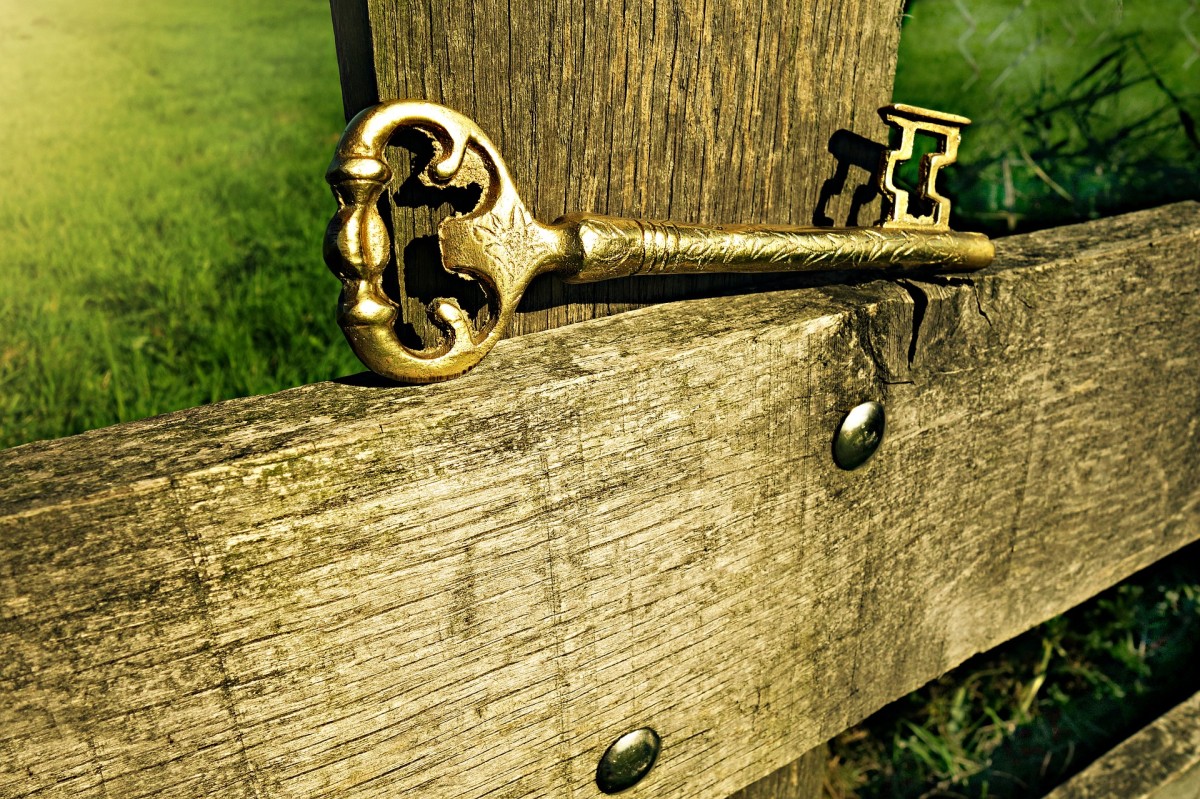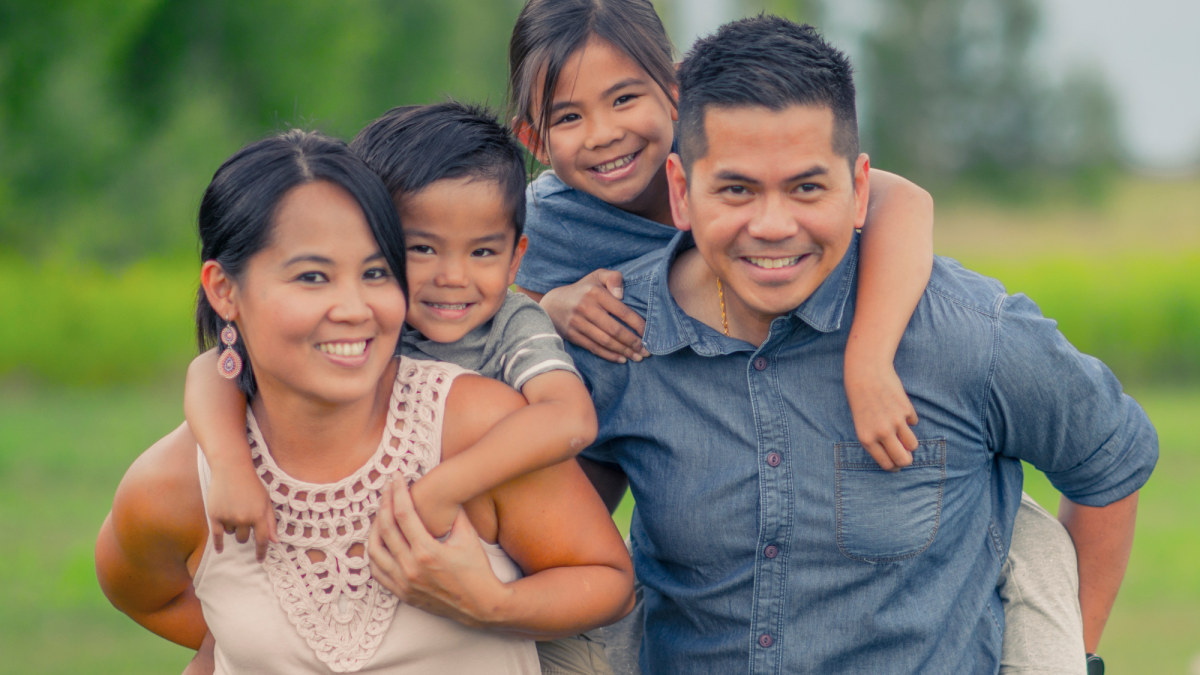- HubPages»
- Health»
- Mental Health»
- Emotions
Make Better Decisions - Sleep On It

Think About It and Sleep On It
When you are faced with a major decision, your boss or adviser may have told you, "Sleep on it." Presumably, this will give you time to think about the pros and cons, and avoid making a rash, rushed decision.
There are many reasons that sleeping on it helps you with your big problem or decision. Some of them have to do with simply having more time, while others actually about the act of sleeping. Some of these reasons are based on studies that will help us prove that sleeping on it actually works and is not just an old wives' tale.
Avoid Rash and Rushed Judgments and Decisions
By telling you to sleep on it, your manager or whoever presented the idea is also communicating to you that this is an important decision and not one that should be treated lightly. You may find that it is a bigger time commitment or require a greater sacrifice than you initially envisioned.
One benefit of being told to sleep on it is that you get more time to think about your decision. You can weigh the pros and cons, conduct internet and other research, and ask your loved ones what they think. You also get time to come up with questions and issues that you may not have considered when you first heard the original idea.
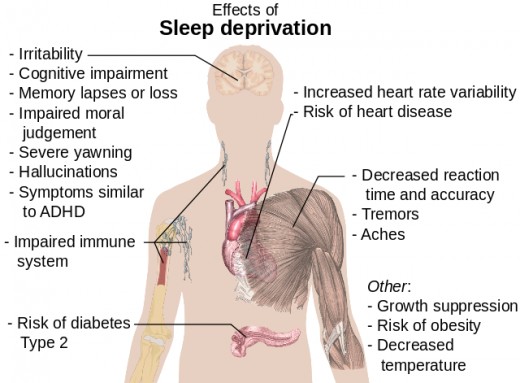
Lets you think when you are at your best
Especially if you are tired, you may not be capable of thinking through all of the intricacies and long term consequences of your decision. You will also be able to look at the issue in a fresh perspective in the morning.
The image on the right shows that when you are sleep deprived, you may have some cognitive impairment, memory losses, and impaired moral judgment. Even if you are not sleep deprived, you will suffer from these effects when you are tired.
Adds Impulse Control
Another benefit to simply waiting is to avoid impulsive tendencies. While you may initially want to buy a new motorcycle or naughty lingerie, after some time has passed, you may decide that you were caught up in the sales pitch, and really don't need or can't afford a new one.
You can get away from the sales pitch and the excitement of the marketing atmosphere, and think through whether you really need the item and whether you can afford it. This will also give you time to think about your other priorities and see how this purchase will fit into the mix.
Less Stress
According to the description on Amazon for Sleep for Success: Everything You Must Know About Sleep but Are too Tired to Ask by Dr. James B. Mass and Rebecca Robbins, sleep reduces stress.
Given the present, stress-inducing state of the economy and the world, there has never been a better time to provide a wake-up call on how to relax, get centered, get eight hours of sleep, and be happier and more successful. Recent research has shown us that when we get enough sleep, we are able to accomplish more in less time and with less stress and greater health.
If you make a decision when you are less stressed, you may be able to think through the various factors quickly and be able to find a solution that will work long term. You may even come up with additional options that hadn't considered.

Experience Unconscious Thought
Dr. Martaan Bos of Radboud University in Nijmegen and Amy Cuddy of Harvard Business School have presented research studies that suggest that while thinking through a decision can be helpful, sometimes it is better to let your unconscious mind handle it. Clearheaded, logical, conscious thought may lead us to have greater confidence in our decisions, but they may give too much weight to factors that are not as important. Unconscious thought, on the other hand, works in the background while you are doing something else, like sleeping.
In short, sleeping on a decision allows us to differentiate between the vital and the irrelevant aspects, ultimately leading to higher quality decisions. Our unconscious can process large amounts of information — as long as we give it time to do so.
They found that unconscious thought supports the kind of mental organization needed for making complex decisions. It can handle larger volume of information, and actually fuels the creative process.
He found that conscious thought was good for selecting options based on a certain decision rule, but the unconscious thought helped select good, intuitive options based on an aggregate of different decision rules.
He suggests this guidance on how to enlist the help of your subconscious in decision making.
- Take in all the information.
- Sleep on it
- Check the facts again, because the subconscious is not as precise as the conscious.
Conscious Decision Making Tips
- Ask questions to make sure you have all the facts
- Examine all the evidence
- Think through long- and short-term consequences
- Avoid drifting. Many times we just do something because someone asked us to or because we think it is the next step without thinking about whether it is the right action in the situation.
- Define the problem
- Analyze assumptions and biases
- Avoid emotional reasoning
- Ask others for input.
- Consider the long term consequences
- Don't oversimplify
- Consider other choices
- Keep your goals in mind
- Ask yourself what the wisest person you know would do
- Consider others who will be impacted by your decision
Experience the Art and Science of Delay
Instead of focusing only on how to make a decision, we should also focus on the timing of the decision. In his book Wait: The Art and Science of Delay, James Partnoy recommends that we wait until the last minute to make decisions. A former investment banker and corporate lawyer, he is a professor of finance and law and co-director of the Center for Corporate and Securities Law at the University of San Diego. He states that waiting will give you the time to deliberate on your decision and to look at all the angles.
In his interview with the Smithsonian, he described this process of managing delay with an example of getting an email message.
Just take a breath. Take more pauses. Stare off into the distance. Ask yourself the first question of this two-step process: What is the maximum amount of time I have available to respond? I free up time today that I can spend on something else, and I’ll be unconsciously working on the question asked in the email for a week.
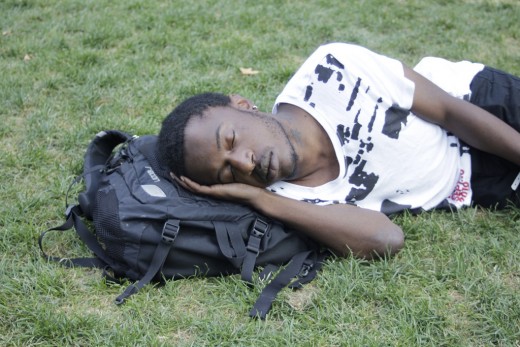
Dr. Rebecca Spencer Discusses Her Sleep Studies
Sleep and Learning
Dr. Rebecca Spencer, assistant professor in the Psychology Department in the College of Natural Sciences at UMass Amherst, studies the impact of sleep on learning and its effect on memory as people age.
Her recent findings include scientific substantiation of the old advice to "sleep on it" when trying to make a decision. She found that those students who slept between two play sessions of the Iowa Gambling Task had a better understanding of the game and superior behavioral outcomes.
In other studies, she has also found that sleep helps process emotional aspects of events, helping make those events more memorable.
Sleep and Decision Making
While many decisions can be made quickly with the conscious mind and have few long term consequences, there are some decisions that are so complex, that they really need a lot of time to analyze and absorb.
When you are making the big decisions, like whether to take a job promotion in another state or whether it is time to start a family, you may be better off thinking about it consciously, and then letting your unconscious mind work on it for a few days while you sleep on it. Studies have shown that your unconscious mind will be able to analyze the different factors of these complex questions, and you will make better decisions as a result.
© 2012 Shasta Matova



